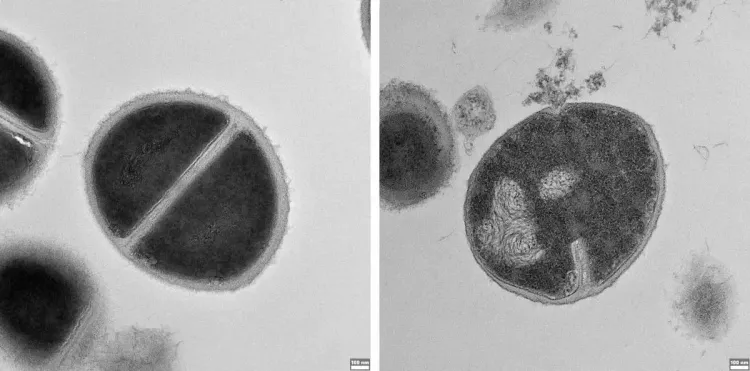Protein Recycling System in the Human Body Acts as a Defense Against Bacteria: Research

Synopsis
Key Takeaways
- Proteasomes release antimicrobial peptides.
- Active proteasomes control bacterial growth.
- Over 270,000 potential antibacterial peptides identified.
- Findings could lead to tailored therapies.
- Study showcases synergy between innovation and basic research.
Jerusalem, March 6 (NationPress) Israeli scientists have made a remarkable discovery regarding the immune defense function of the proteasome, a cellular component recognized for its role in the degradation and recycling of proteins.
The research, featured in Nature, has the potential to guide innovative approaches to combat antibiotic-resistant infections, according to the Xinhua news agency.
Led by a team from the Weizmann Institute of Science (WIS), the investigation revealed that while dismantling aged proteins, the proteasome consistently releases antimicrobial peptides.
These peptides are crucial elements of the body's initial defense mechanism as they target and eliminate bacteria.
Experimental results indicated that human cells with active proteasomes successfully managed bacterial proliferation, whereas inhibiting proteasome function led to increased infection spread, as stated by WIS.
In experiments with infected mice, peptides produced by the proteasome diminished bacterial counts, reduced tissue damage, and notably increased survival rates, proving to be as effective as potent antibiotics currently utilized.
The researchers uncovered over 270,000 potential antibacterial peptides concealed within 92% of human proteins.
Prof. Yifat Merbl's lab at WIS mentioned, “This peptide database heralds a new era for crafting personalized therapies against infections and various medical issues.”
The implications of these findings may pave the way for developing customized treatments to enhance immune responses in vulnerable individuals, such as those battling cancer or having compromised immune systems.
Aside from the clinical ramifications, the team expressed their excitement over unveiling a fundamental cellular mechanism governed by the proteasome, different from any previously recognized.
“This study emphasizes the synergy between technological innovation and fundamental research in unexpected manners. Without the advancements that enabled us to analyze cellular waste, this discovery would remain undiscovered. However, when we created this technology, we could not have foreseen it would lead us to a new immune mechanism,” remarked Merbl.









